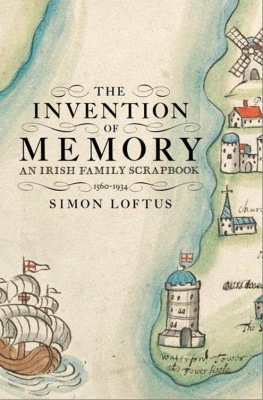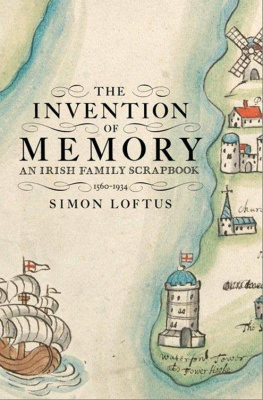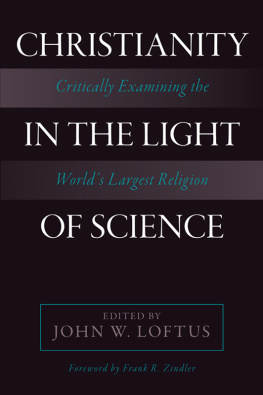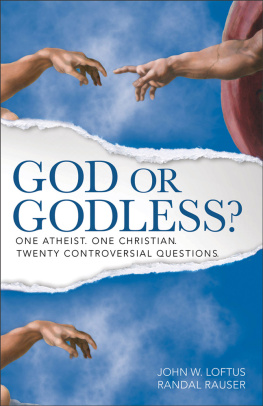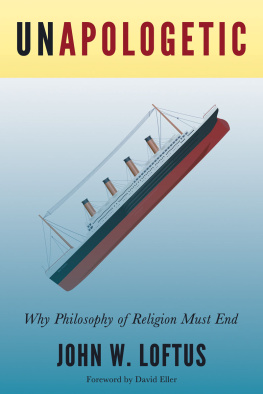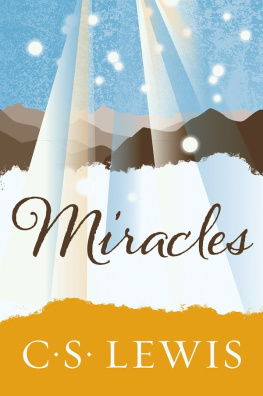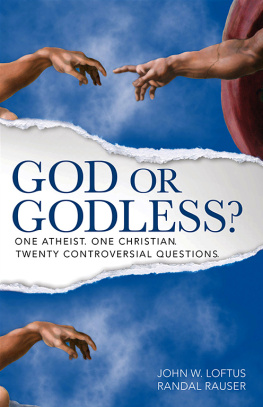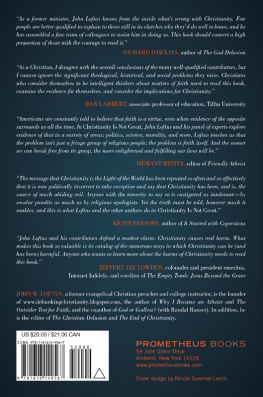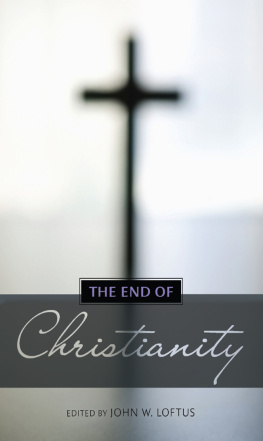All rights reserved. No part of this publication may be reproduced, stored in or introduced into a retrieval system or transmitted in any form or by any means, electronic, mechanical, photocopying, recording or otherwise without prior written permission from the publisher.
This volume is dedicated to the legacy of David Hume, considered to be the greatest English-speaking philosopher who ever lived.
I flatter myself, that I have discovered an argumentwhich, if just, will, with the wise and learned, be an everlasting check to all kinds of superstitious delusion, and consequently, will be useful as long as
the world endures.
From Of Miracles by David Hume (1711-1776).
Advance Praise
The Case against Miracles is the most important anthology to ever be written about miracles.
Peter Boghossian, author of A Manual for Creating Atheists and How to Have Impossible Conversations .
While some entries are stronger than others, The Case against Miracles represents a powerful critique of the miraculous. Its central arguments demand the attention of any serious defender of the Christian faith.
Trent Horn, a Christian apologist who earned three masters degrees in theology, philosophy, and bioethics, and author of nine books, including Answering Atheism .
This book is a secular miracle! An extremely rare event. For gathering this well-reasoned material into such an accessible volume, John Loftus should be canonized.
Dan Barker, author of Godless , Free Will Explained , and GOD: The Most Unpleasant Character in All Fiction .
People of all faiths and of no faith will find The Case against Miracles to be a fascinating read filled with thoughts that will challenge them, with ideas that will lead them to research more, and with philosophical premises that will create meaningful discussions.
Dr. Dan Lambert, Minister, First Unitarian Universalist Congregation of the Palm Beaches
In this book Loftus has marshaled all the key arguments to prove that people should seriously doubt all religious miracle claims. It should be required reading in all seminaries.
Karen L. Garst, PhD, editor of Women Beyond Belief and Women v. Religion .
Every John W. Loftus book is a must-read; he continues to assemble some of the finest and most insightful minds in contemporary counter-apologetics. Putting biblical miracle claims under the magnifying lens, it weighs the evidence and finds them wanting. The Case against Miracles is a superb resource and a handy field guide for anyone forced to traipse through the treacherous jungles of the miraculous.
David Fitzgerald, author of Nailed , Jesus: Mything in Action , and The Complete Heretic's Guide to Western Religion.
John Loftus The Case against Miracles is a must read for anyone who truly and honestly wonders whether a miracle has ever occurred. Especially useful is its treatment of Craig Keener and his reports of the miraculous. Not only is the speciousness of Keeners stories exposed, and the myriad faults of his investigate approach laid bare, but the details of how investigation into the miraculous must be approached is clearly articulated.
David Kyle Johnson, Ph.D, author of The Great Courses The Big Questions of Philosophy
The Case against Miracles is a must read go-to book for showing the key flaws in the arguments Christian apologists use to convince people that miracles are real. Its the best book ever written on miracles.
Mark W. Gura, president of Atheist Alliance of America,
author, and atheist activist.
Contents
Foreword: On Miracles and Truth
By Michael Shermer
Introduction
Part 1: Miracles and the Abject Failure of Christian Apologetics
1| Miracles and the Challenge of Apologetics
By David Corner
2| God Would Not Perform Miracles
By Matt McCormick
3| Extraordinary Claims Require Extraordinary Evidence
By John W. Loftus
4| Properly Investigating Miracle Claims
By Darren M. Slade
5| Assessing Keeners Miracles
By Edward T. Babinski
6| The Abject Failure of Christian Apologetics
By John W. Loftus
7| Why Do Christians Believe in Miracles?
By Valerie Tarico
Part 2: Properly Investigating the Miracle of Biblical Revelation
8| Why the Romans Believed the Gospels
By R. G. Price
9| How New Testament Writers Helped Jesus Fulfill Prophecy
By Robert J. Miller
10| The Prophetic Failure of Christs Return
By Robert Conner
11| Five Inconvenient Truths that Falsify Biblical Revelation
By David Madison, PhD
Part 3: Properly Investigating Key Biblical Miracles
12| Evolution is a Fact!
By Abby Hafer
13| Old Testament Miracle Genres as Folklore and Legend
By Randall Heskett
14| Science, Miracles and Noahs Flood
By Clay Farris Naff
15| Jesus Christ: Docetic Demigod
By Robert M. Price
16| Miracles of the Christian Magicians
By Robert Conner
17| Credulity At Cana?
By Evan Fales
18| The Resurrection of Jesus Never Took Place
by John Loftus
19| Pauls Christianity
By Robert Conner
Epilogue
Appendix: Hume On Proof and Mathematical Probability
by John W. Loftus
About the contributing Authors
Foreword
On Miracles and Truth
By Michael Shermer
Have you ever gone to the phone to call a friend, only to have the phone ring first and find your friend on the line? What are the odds of that? Not high, to be sure, but the sum of all probabilities equals one. How many times did you phone your friend and he or she didnt call? How many times did your friend phone and you werent thinking of him or her? Multiply that by a couple hundred million people in the U.S. alone making dozens of calls a day, and it becomes almost inevitable that this seemingly miraculous connectionwhich many people attribute to synchronicity or Karma or a supernatural force or God or whateveris fully explained by probabilities. Given enough opportunities, outlier anomalieseven apparent miracleswill happen. And thanks to the confirmation bias in which we look for and find confirming evidence for what we already believe and ignore or rationalize away disconfirming evidence, we will remember the hits and forget the misses.
A miracle may be defined in many ways, so lets start with this colloquial meaning of a highly unusual event, as when someone exclaims its a miracle! when winning the lottery, or it was miraculous when recovering from a serious illness, or most famously at the end of the 1980 Olympic hockey game when the underdog U.S. team defeated the mighty Russian juggernaut and the ABC TV sports commentator Al Michaels exclaimed Do you believe in miracles?! Let us quantify this intuitive sense of a highly unlikely event as one with million-to-one odds of occurring. Now lets apply some back-of-the-envelope calculations along the lines of the apparently miraculous phone call above. Assuming were awake and alert for 12 hours a day and that, say, one bit of information flows into our brains through our senses per second, that generates 43,200 bits of data per day, or 1,296,000 per month. Even assuming that 99.999 percent of these bits are totally meaningless (and so we filter them out or forget them entirely), that still leaves 1.3 miracles per month, or 15.5 miracles per year. That is, with enough data accumulating from the world theres bound to be highly unusual occurrences that we notice. How unusual? One in a million.


